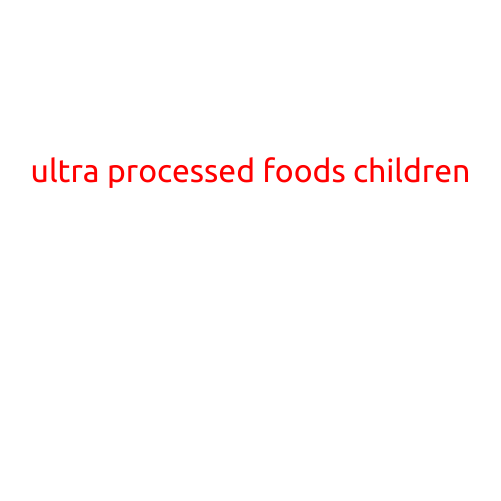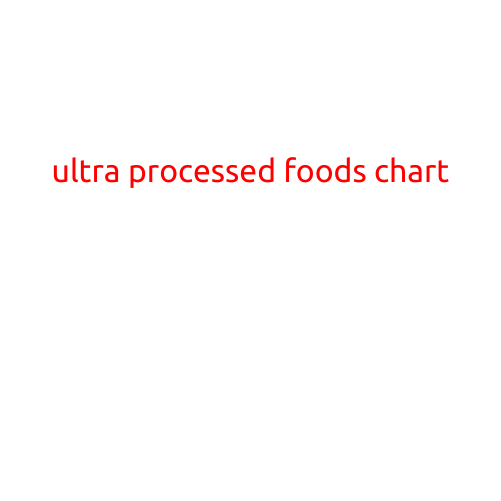
Title: The Hidden Dangers of Ultra-Processed Foods for Children’s Health
Introduction:
As parents, we strive to provide our children with the best possible start in life. One of the most significant steps we can take is to ensure they are eating a balanced and healthy diet. However, many children’s diets are being compromised by the widespread consumption of ultra-processed foods. These foods, which are often high in sugar, salt, and unhealthy fats, are linked to a range of health problems, from obesity and dental cavities to cognitive impairment and increased risk of chronic diseases.
What are Ultra-Processed Foods?
Ultra-processed foods are foods that have been heavily transformed from their natural state through various methods, such as cooking, frying, or preserving. They are typically made from a combination of ingredients, including added sugars, salt, and unhealthy fats. Examples of ultra-processed foods include:
- Frozen meals, such as pizza, chicken nuggets, and macaroni and cheese
- Baked goods, such as cakes and cookies
- Sweet and savory snacks, such as chips and crackers
- Sugary drinks, such as soda and sports drinks
- Refined cereals
- Instant noodles
The Risks for Children:
Consuming high amounts of ultra-processed foods has been linked to a range of negative health effects in children, including:
- Obesity: Ultra-processed foods are often high in calories and sugar, leading to an increased risk of obesity and related health problems.
- Dental Cavities: The high sugar content in ultra-processed foods contributes to tooth decay and dental cavities, which can be painful and require costly and invasive treatments.
- Cognitive Impairment: Research has shown that ultra-processed foods can impede cognitive development in children, leading to decreased attention span, memory problems, and slower learning.
- Increased Risk of Chronic Diseases: Consuming high amounts of ultra-processed foods has been linked to an increased risk of chronic diseases, such as type 2 diabetes, heart disease, and certain types of cancer.
- Nutrient Imbalance: Ultra-processed foods are often lacking in essential nutrients, leading to imbalances and deficiencies that can have long-term consequences for children’s health.
What Can Parents Do?
While it may seem overwhelming to change your child’s diet, there are several steps you can take to reduce the amount of ultra-processed foods they consume:
- Read Labels: When shopping, read food labels carefully to avoid products with added sugars, salt, and unhealthy fats.
- Cook from Scratch: Cooking meals from scratch using fresh, whole ingredients can help ensure your child is getting the nutrients they need.
- Stock Your Pantry: Keep your pantry stocked with whole, unprocessed foods, such as fruits, vegetables, whole grains, and lean proteins, to make healthy eating easier.
- Limit Treats: Try to limit treats and snacks to special occasions, and choose healthier options, such as fruits, nuts, and carrot sticks with hummus.
- Involve Your Child: Teach your child about the importance of healthy eating and involve them in meal planning and cooking. This can help them develop healthy eating habits and a positive relationship with food.
Conclusion:
Ultra-processed foods pose a significant threat to children’s health, from obesity and dental cavities to cognitive impairment and increased risk of chronic diseases. By making a few simple changes to your child’s diet, such as reading labels, cooking from scratch, and stocking your pantry with whole foods, you can help set them up for a lifetime of health and well-being.





